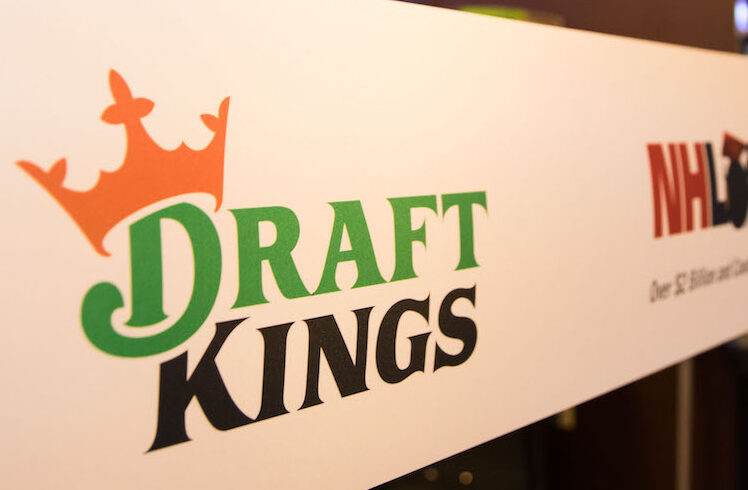- DraftKings reported $4.77 billion in revenue for 2024, a 30% increase year-on-year.
- The company achieved positive EBITDA of $181.3 million, its first since going public in 2020.
- Unfavorable NFL results and customer-friendly outcomes led to a 40% drop in Q4 adjusted EBITDA.
Quarterly Performance: Q4 Highlights and Setbacks
Turning to the fourth quarter, DraftKings saw a solid revenue performance with $1.39 billion, up 13% year-on-year from $1.23 billion in Q4 2023. This growth was driven by strong customer engagement, efficient new customer acquisition, and the expansion of its sportsbook offerings into new jurisdictions. Notably, DraftKings also benefited from its acquisition of Jackpocket, a digital lottery company. However, Q4’s performance was not without its hurdles. Customer-friendly outcomes during the NFL season, including some surprise results, impacted revenues.
Despite the challenges, DraftKings saw a notable uptick in its customer base, with monthly unique players rising to 4.8 million in Q4, a 36% increase compared to the same period last year. Player retention across both its sportsbook and iGaming products contributed to this growth, although average revenue per player (ARPU) fell by 16% year-on-year to $97. The drop in ARPU was attributed to lower player revenue from Jackpocket customers and the aforementioned customer-friendly outcomes in sports betting.
The fourth quarter also marked a significant milestone for DraftKings when it reported its highest-ever customer acquisition day during the Tyson-Paul boxing match on November 15. Furthermore, the company posted a record daily sportsbook handle of $436 million, largely driven by the Super Bowl, highlighting the strong engagement that marquee events can generate.
However, the quarter ended on a slightly disappointing note in terms of profitability. DraftKings’ adjusted EBITDA for Q4 was $89.5 million, which represented a 40% decline from the previous year’s $151 million. The downturn was primarily attributed to the unfavorable NFL results that weighed on the company's sportsbook performance.
CEO’s Optimism Amid Challenges
Despite missing its EBITDA guidance, DraftKings CEO and co-founder Jason Robins remains confident in the company’s future prospects. In a statement, Robins emphasized that the operator continues to improve its structural sportsbook hold percentage, signaling that the long-term potential for growth is still high. He also pointed to the accelerating trend of online gaming legalization across the US, suggesting that DraftKings is well-positioned at the “epicenter” of this growing market.
DraftKings has been actively expanding its footprint with strategic acquisitions, such as its purchase of Simplebet, a live betting company, in 2024. The deal is expected to bolster the company’s capabilities in in-play betting, which Robins believes could become a key growth driver. The acquisition of Jackpocket, completed earlier in the year, also aligns with DraftKings’ push to diversify its offerings, particularly in the digital lottery space.
Looking ahead to 2025, DraftKings has increased its EBITDA guidance to between $900 million and $1.0 billion, a slight upward revision from its previous forecast of $6.4 billion in revenue. CFO Alan Ellingson attributed the increase in expected EBITDA primarily to anticipated returns from investments in live betting, including the Simplebet acquisition. However, DraftKings has chosen not to include the financial impact of recent sports outcomes, such as the Super Bowl, in its forward guidance. Additionally, it has excluded the potential effects of Missouri’s forthcoming sports betting regulation, which is set to launch in June 2025.
While DraftKings has demonstrated resilience in its financial performance, the company’s dependence on sports outcomes remains a significant risk factor. As the company continues to scale its operations and diversify its product offerings, the path forward will depend on how well it can manage these variables and adapt to regulatory changes in the rapidly evolving US gambling market.
We continued to efficiently acquire and engage customers, expand structural sportsbook hold percentage and optimise promotional reinvestment in fiscal year 2024.
Conclusion
DraftKings’ 2024 financial results reflect the company’s ongoing growth, but also highlight the volatility inherent in the sports betting sector. While the company celebrated its first positive EBITDA year since going public, its failure to meet its adjusted EBITDA guidance underscores the unpredictable nature of its business. Going forward, DraftKings will need to navigate the challenges posed by fluctuating sports outcomes and regulatory changes, all while capitalizing on its investments in new technologies and market expansion. As CEO Jason Robins noted, DraftKings stands at the “epicenter” of a growing trend, but how the company adjusts to evolving conditions in the market will be crucial to its future success.










